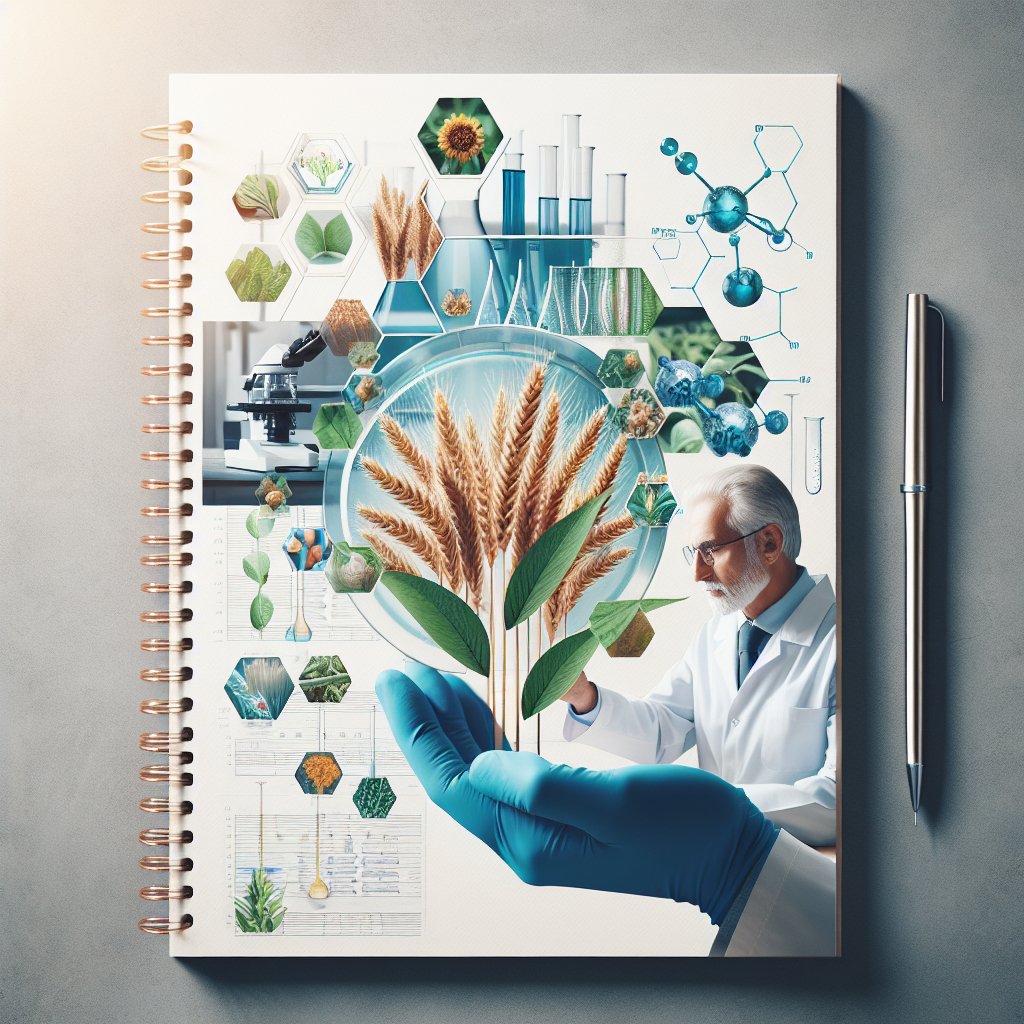Biotechnology has emerged as a pivotal force in transforming modern agriculture, offering innovative solutions to age-old challenges. By harnessing the power of genetic engineering, molecular markers, and other biotechnological tools, agriculture has witnessed significant advancements in crop yield, pest resistance, and environmental sustainability. This article delves into the multifaceted role of biotechnology in agriculture, exploring its impact on crop production and environmental conservation.
Enhancing Crop Production through Genetic Engineering
One of the most significant contributions of biotechnology to agriculture is the development of genetically modified organisms (GMOs). These organisms have been engineered to possess desirable traits, such as increased resistance to pests and diseases, improved nutritional content, and enhanced tolerance to environmental stresses like drought and salinity. Genetic engineering allows for precise modifications at the molecular level, enabling the development of crops that can thrive in challenging conditions.
The introduction of Bt crops, which are genetically modified to express Bacillus thuringiensis toxin, is a prime example of biotechnology’s impact on agriculture. Bt crops have significantly reduced the need for chemical pesticides, leading to lower production costs and reduced environmental impact. Farmers have reported increased yields and improved crop quality, contributing to food security and economic stability.
Moreover, biotechnology has facilitated the development of crops with enhanced nutritional profiles. Biofortification, the process of increasing the nutritional value of crops through genetic modification, has led to the creation of crops like Golden Rice, which is enriched with vitamin A. Such innovations have the potential to address malnutrition and improve public health, particularly in developing regions where nutrient deficiencies are prevalent.
Biotechnology and Environmental Sustainability
Biotechnology plays a crucial role in promoting environmental sustainability in agriculture. By reducing the reliance on chemical inputs, such as fertilizers and pesticides, biotechnology helps minimize the ecological footprint of farming practices. The development of crops with improved nitrogen-use efficiency, for instance, reduces the need for synthetic fertilizers, which are a major source of environmental pollution.
Additionally, biotechnology contributes to the conservation of biodiversity. Traditional agricultural practices often involve the extensive use of land and resources, leading to habitat destruction and loss of biodiversity. Biotechnological advancements, such as the development of high-yielding crop varieties, enable farmers to produce more food on less land, thereby preserving natural ecosystems and promoting biodiversity conservation.
Bioremediation is another area where biotechnology has shown promise. This process involves the use of microorganisms to degrade or detoxify pollutants in the environment, offering a sustainable solution to soil and water contamination. By employing genetically engineered microbes, bioremediation can effectively address pollution from agricultural runoff, industrial waste, and other sources, contributing to a healthier environment.
Challenges and Future Prospects
Despite the numerous benefits of biotechnology in agriculture, several challenges remain. Public perception and regulatory hurdles continue to pose significant obstacles to the widespread adoption of GMOs. Concerns about the safety and ethical implications of genetic engineering have led to stringent regulations and limited acceptance in certain regions. Addressing these concerns through transparent communication and rigorous safety assessments is crucial for the future of biotechnology in agriculture.
Looking ahead, the integration of biotechnology with other emerging technologies, such as precision agriculture and artificial intelligence, holds great promise for the future of farming. By leveraging data-driven insights and advanced biotechnological tools, farmers can optimize resource use, enhance crop resilience, and improve overall productivity. The continued advancement of biotechnology will be instrumental in meeting the growing global demand for food while ensuring environmental sustainability.
In conclusion, biotechnology has revolutionized agriculture by providing innovative solutions to enhance crop production and promote environmental sustainability. While challenges remain, the potential benefits of biotechnology in addressing global food security and environmental conservation are immense. As research and development in this field continue to progress, biotechnology will undoubtedly play a central role in shaping the future of agriculture.
